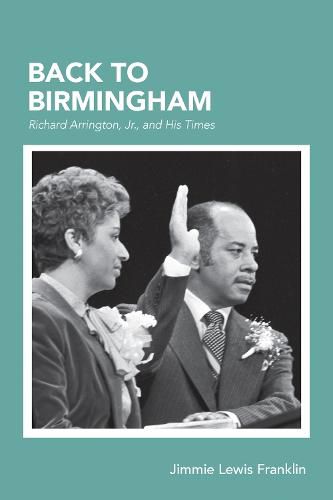Readings Newsletter
Become a Readings Member to make your shopping experience even easier.
Sign in or sign up for free!
You’re not far away from qualifying for FREE standard shipping within Australia
You’ve qualified for FREE standard shipping within Australia
The cart is loading…






During the 1960s, Birmingham, Alabama, became a major battleground in the struggle for human rights in the American South. As one of the most segregated cities in the United States, the city of Birmingham became known for its violence against blacks and the callous suppression of black civil rights.
In October of 1979, the city that had once used dogs and fire hoses to crush protest demonstrations elected a black mayor, Richard Arrington Jr. A man of quiet demeanor, Arrington was born in the small rural town of Livingston, Alabama, and moved to Birmingham as a child. Although he did not play a direct part in the civil rights movement in the 1960s, Arrington was destined to bring about some fundamental changes in a city that once defied racial progress.
Professor Franklin’s book is guided by the assumption that Americans everywhere can find satisfaction in understanding the dynamics of social and political change, and they can be buoyed by the individual triumph of a person who beat the odds. Ultimately, Back to Birmingham will, perhaps, enable the reader to measure the distance black southerners have traveled over the decades.
$9.00 standard shipping within Australia
FREE standard shipping within Australia for orders over $100.00
Express & International shipping calculated at checkout
During the 1960s, Birmingham, Alabama, became a major battleground in the struggle for human rights in the American South. As one of the most segregated cities in the United States, the city of Birmingham became known for its violence against blacks and the callous suppression of black civil rights.
In October of 1979, the city that had once used dogs and fire hoses to crush protest demonstrations elected a black mayor, Richard Arrington Jr. A man of quiet demeanor, Arrington was born in the small rural town of Livingston, Alabama, and moved to Birmingham as a child. Although he did not play a direct part in the civil rights movement in the 1960s, Arrington was destined to bring about some fundamental changes in a city that once defied racial progress.
Professor Franklin’s book is guided by the assumption that Americans everywhere can find satisfaction in understanding the dynamics of social and political change, and they can be buoyed by the individual triumph of a person who beat the odds. Ultimately, Back to Birmingham will, perhaps, enable the reader to measure the distance black southerners have traveled over the decades.